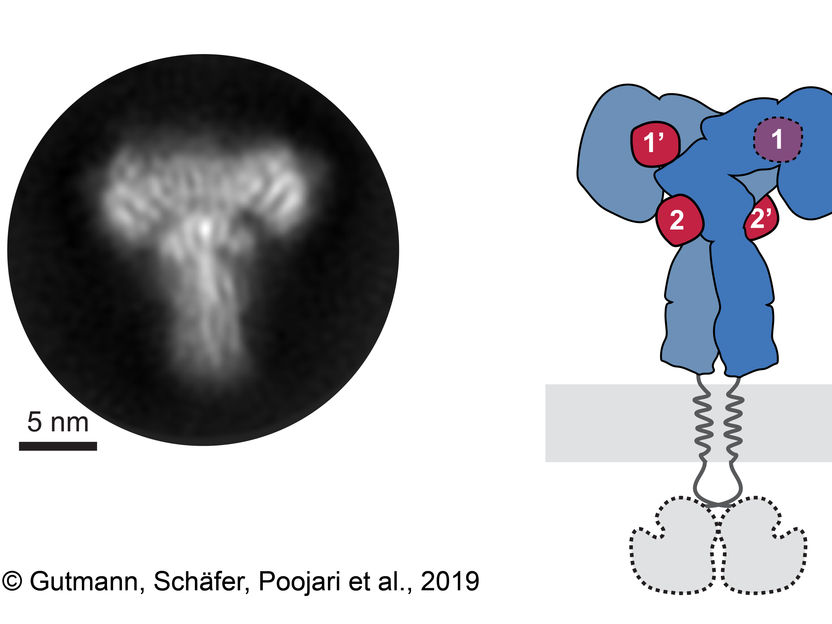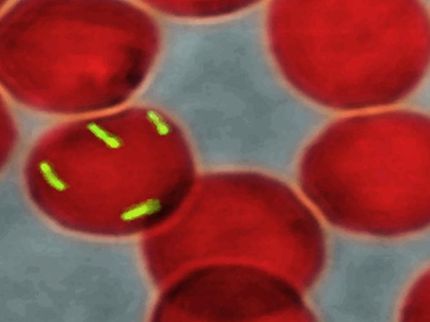Garlic can fight chronic infections
An active sulphurous compound found in garlic can be used to fight robust bacteria in patients with chronic infections, a new study from the University of Copenhagen indicates. Here the researchers show that the garlic compound is able to destroy important components in the bacteria's communication systems, which involve regulatory RNA molecules.

Skitterphoto; pixabay.com; CC0
'We really believe this method can lead to treatment of patients, who otherwise have poor prospects. Because chronic infections like cystic fibrosis can be very robust. But now we, together with a private company, have enough knowledge to further develop the garlic drug and test it on patients', says Assistant Professor Tim Holm Jakobsen from the Costerton Biofilm Center at the Department of Immunology and Microbiology.
The study is the latest addition from a research group headed by Professor Michael Givskov, which since 2005 has focussed on garlic's effect on bacteria. At the time they learned that garlic extract is able to inhibit bacteria, and in 2012 they showed that the sulphurous compound ajoene found in garlic is responsible for the effect. The new study takes an even closer look and documents ajoene's ability to inhibit small regulatory RNA molecules in two types of bacteria.
'The two types of bacteria we have studied are very important. They are called Staphylococcus aureus and Pseudomonas aeruginosa. They actually belong to two very different bacteria families and are normally fought using different methods. But the garlic compound is able to fight both at once and therefore may prove an effective drug when used together with antibiotics', says Tim Holm Jakobsen.
Previous studies have shown that garlic appears to offer the most powerful, naturally occurring resistance to bacteria. In addition to inhibiting the bacteria's RNA molecules, the active garlic compound also damages the protective slimy matrix surrounding the bacteria, the so-called biofilm. When the biofilm is destroyed or weakened, both antibiotics and the body's own immune system are able to attack the bacteria more directly and thus remove the infection.
In 2012 the researchers took out a patent on the use of ajoene to fight bacterial infections. Now the company Neem Biotech has bought the licence to use the patent. Their medical product, NX-AS-401, which aims to treat patients with cystic fibrosis, has now obtained a so-called 'orphan drug designation'. This means that clinical trials on patients will be conducted soon.
If the clinical trials show good results, the drug can be marketed as the first in a series of antimicrobial connections with brand new modes of action developed by Givskov's research team.
Original publication
Tim H. Jakobsen, Anders N. Warming, Rebecca M. Vejborg, Joana A. Moscoso, Marc Stegger, Frederik Lorenzen, Morten Rybtke, Jens B. Andersen, Rico Petersen, Paal Skytt Andersen, Thomas E. Nielsen, Tim Tolker-Nielsen, Alain Filloux, Hanne Ingmer & Michael Givskov; "A broad range quorum sensing inhibitor working through sRNA inhibition"; Scientific Reports; 2017
Original publication
Tim H. Jakobsen, Anders N. Warming, Rebecca M. Vejborg, Joana A. Moscoso, Marc Stegger, Frederik Lorenzen, Morten Rybtke, Jens B. Andersen, Rico Petersen, Paal Skytt Andersen, Thomas E. Nielsen, Tim Tolker-Nielsen, Alain Filloux, Hanne Ingmer & Michael Givskov; "A broad range quorum sensing inhibitor working through sRNA inhibition"; Scientific Reports; 2017
Topics
Organizations
Other news from the department science

Get the life science industry in your inbox
By submitting this form you agree that LUMITOS AG will send you the newsletter(s) selected above by email. Your data will not be passed on to third parties. Your data will be stored and processed in accordance with our data protection regulations. LUMITOS may contact you by email for the purpose of advertising or market and opinion surveys. You can revoke your consent at any time without giving reasons to LUMITOS AG, Ernst-Augustin-Str. 2, 12489 Berlin, Germany or by e-mail at revoke@lumitos.com with effect for the future. In addition, each email contains a link to unsubscribe from the corresponding newsletter.
Most read news
More news from our other portals
Last viewed contents
Eisai Receives Approval for a New Oral Jelly Formulation of Aricept for the Treatment of Alzheimer’s Disease in Japan



















































